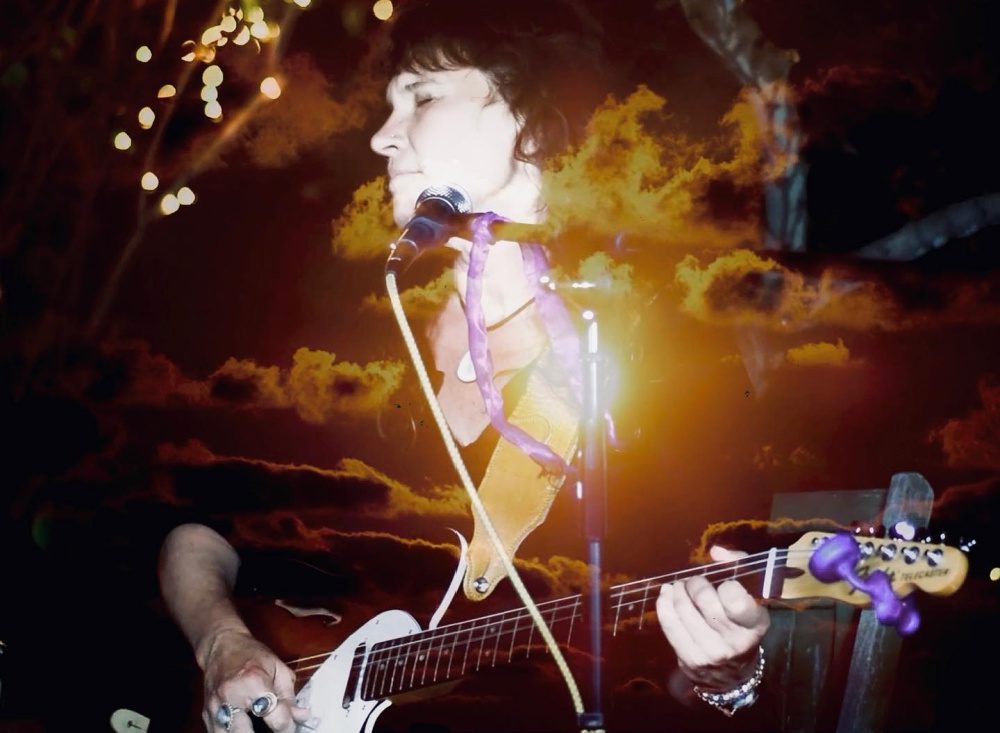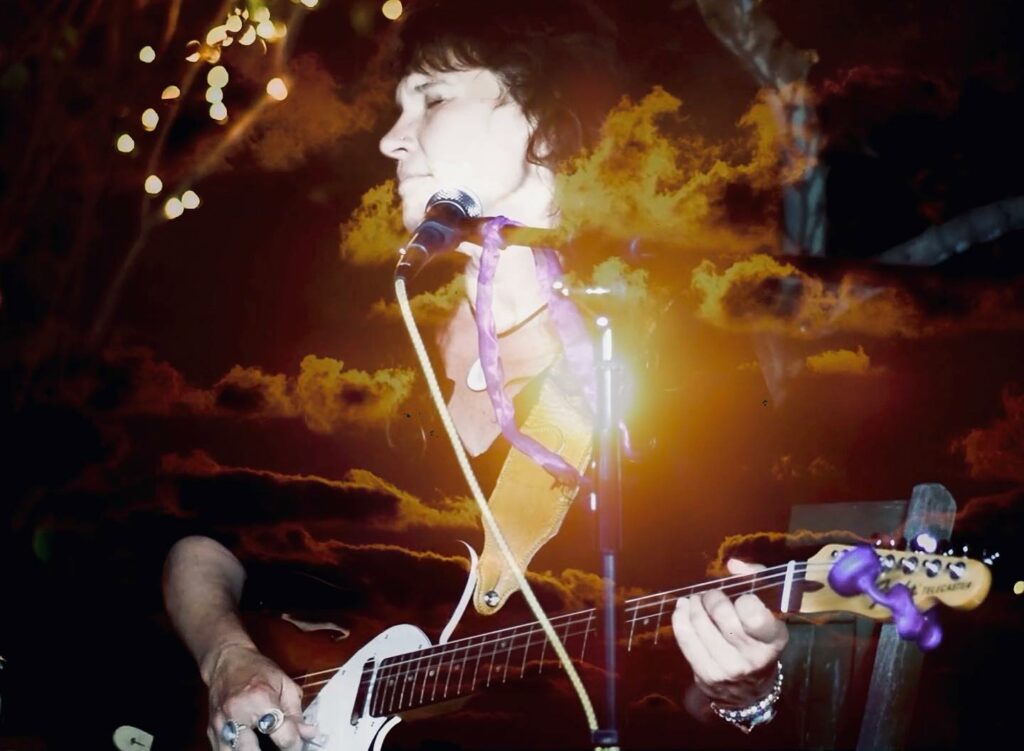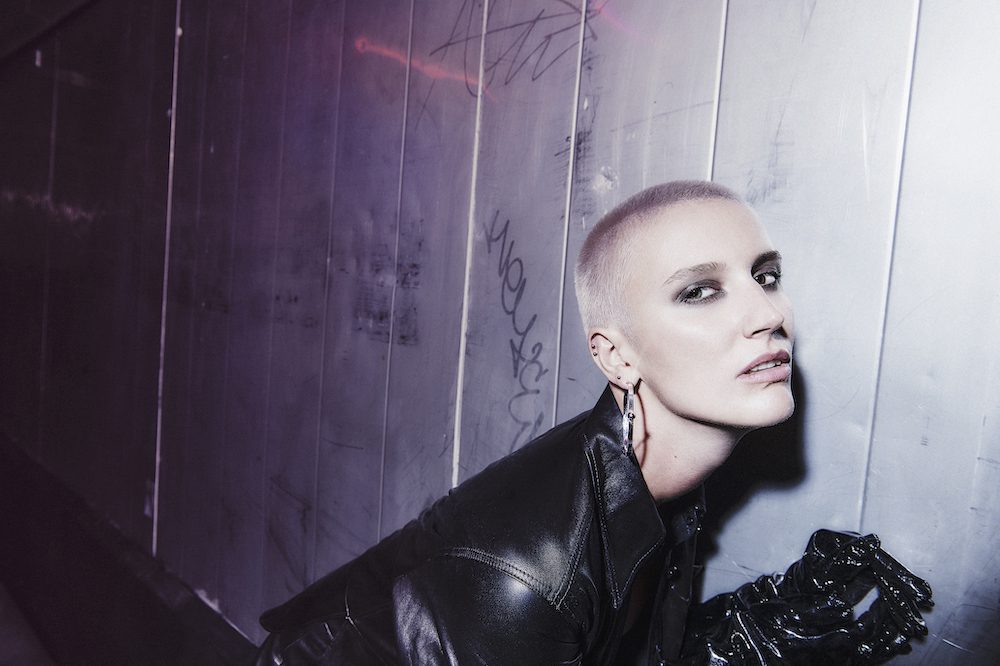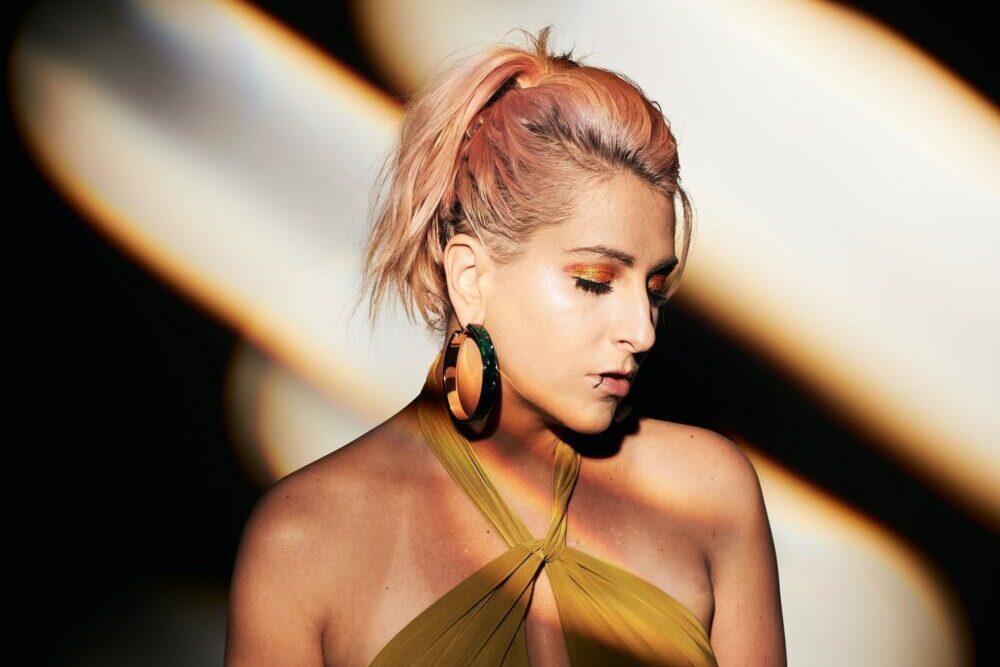PLAYING SEATTLE: Julia Francis Has a Fierce “Cinderella” Story to Tell


On the newly-released version of her single “Cinderella,” Seattle rocker Julia Francis repeats the phrase, “Getting intimate in my mind,” with rasping, smoky vibrato. Francis’ distinctive vocal performance—and the emotionally tumultuous content of “Cinderella”—brings to mind Janis Joplin and something she once said: “I’m a victim of my own insides. There was a time when I wanted to know everything. It used to make me very unhappy, all that feeling. I just didn’t know what to do with it. But now I’ve learned to make that feeling work for me.”
Francis, too, once had a difficult time facing the storm of emotions she had inside. This is evident in the lifespan of her single “Cinderella,” and its psychedelic new video that Audiofemme premieres today. She first wrote the song in the early 2000s as a way through divorce and addiction, but the new version of “Cinderella,” which will appear on Francis’ forthcoming Live at The Royal Room, is a powerfully re-contextualized comment on self-empowerment and Francis’ journey to “celebrating her grief.”
“’Cinderella’ was written in the early 2000s and I actually released it on my first album in 2005, an album called Five Challenges to Flight,” says Francis. “And the song, I feel like it’s a wonderful snapshot of my own internal journey in that when I wrote it I was going through a divorce, I was dealing with addiction and a lot of difficult things. At the time I wrote it because I was feeling like I was somehow trapped or I couldn’t get the love that I needed or deserved.”
There has been significant trauma for Francis to overcome in her life through music—and it started young, when her parents divorced, forcing her to split her time between her California birthplace and the remote island of Kodiak, Alaska, where she eventually went to live full-time with her father.
“My parents divorced when I was 12 and then when I was 14, my mother had a hard time dealing with me because I’m a very independent headstrong person. So, when I was 14 she sent me to live with my dad in Alaska,” remembers Francis. “He’s an alcoholic and very unavailable. So I spent my adolescent years really raising myself and navigating a lot of dangerous, largely sexual, situations without a lot of guidance.”
These dangerous sexual situations eventually led to an assault. “That’s where a lot of my anger definitely came from. And feeling anger towards my father as well, because he wasn’t available to protect me either,” she says.
This hard time—and the loneliness it brought—was what first prompted her to pick up music and express herself through art, a modality with which she felt she could be witnessed safely. Francis found a sort of magic in singing, much like the fairy-tale Cinderella of her song’s namesake, creating peace and love though locked in her own little chamber and denied her power.
“I think for many years I felt my artistic expression was the only safe place to express my emotions,” she says. “As a very young child I remember trying to go into sort of secret places and make sounds and sing. I always felt really connected to the Spirit when I made sounds and I often didn’t feel like it was safe to be heard by others.”
All of this early life trauma played into the writing of “Cinderella” in the early 2000s, as did her leaving a marriage and getting real about alcohol and cannabis, which Francis said she relied on heavily to mute her unprocessed grief. That’s when the “getting intimate in [her] mind” really started—and however salacious the line may seem, she says it’s not about sex.
“It’s more about trying to understand my own internal suffering and trying to dialogue with myself. ‘Why can’t I stop obsessing about people or things?’ ‘Why can’t I sit with my own emotions and feel them?’ ‘Why do I feel this way?’ ‘Where did it begin?’” she explains. “A lot of it is about struggling with having compassion for the self because those voices inside… are telling us ‘You’re not good enough. You’re a failure.’ I think ‘Cinderella’ was about actively acknowledging those voices and trying to find a way to lessen their influence over me.”
While all of these early struggles still color “Cinderella,” the song’s essence has taken on new life for her forthcoming album, Live at The Royal Room, slated for release in Autumn 2021. Francis says there is added fierceness in the new version, which she says stems partly from motherhood, something she left music to do full-time for a decade before returning to the scene in 2015, as a reason for the song’s renewed intensity.
“The experience of having a child was a big part of… owning my own female power. The ability to make a child, and birth a child, it’s a profound, life-changing experience. I was able to open up my voice more expressively to represent all of the different parts of myself inside, the more that I felt the courage to live by my instincts and to fulfill and pursue my desires,” says Francis. “Even though I love her more than anything on the planet, [and] I wouldn’t change any of it, I also think as I revisited the song in the last few years I realized oh, some of that anger is anger at myself that I chose to step away from my music and how unfair it is, [that] as women we often have to sacrifice and put our own needs aside for someone else and there’s a lot of rage in that.”
This newfound conviction also stems from the years of spiritual progress Francis has made through therapy, meditation, and learning about shamanic healing sound healing. Through that personal exploration, she has found a way to further express her pain through her music, in the hopes that it can help others make lemonade from lemons, too.
“If I could boil my work down to one theme it would be grief. That we all have so much grief. I believe we can’t fully move forward and heal ourselves and the planet until we actually express and share our grief with each other. So, I want to be a tool in helping facilitate others to move through and celebrate their grief,” says Francis. “In the 20 years since [I wrote] the song, I have done a ton of internal work and I have explored the unprocessed grief that was passed on to me by my parents and my ancestors, the sexual trauma that I experienced as a teenager… and [I] realized that the song is really more about feeling and channeling all of those emotions to help share my own healing journey in the hopes that it helps others.”
This message is all over the trippy yet simple video for “Cinderella,” as well. It’s in the way Francis carries herself as she performs live with her band in the video. As she “gets intimate in her mind,” she radiates confidence, self-love, and truth. Like Joplin, she’s learned to make the feeling work for her.
Follow Julia Francis on Facebook and Instagram for ongoing updates.




